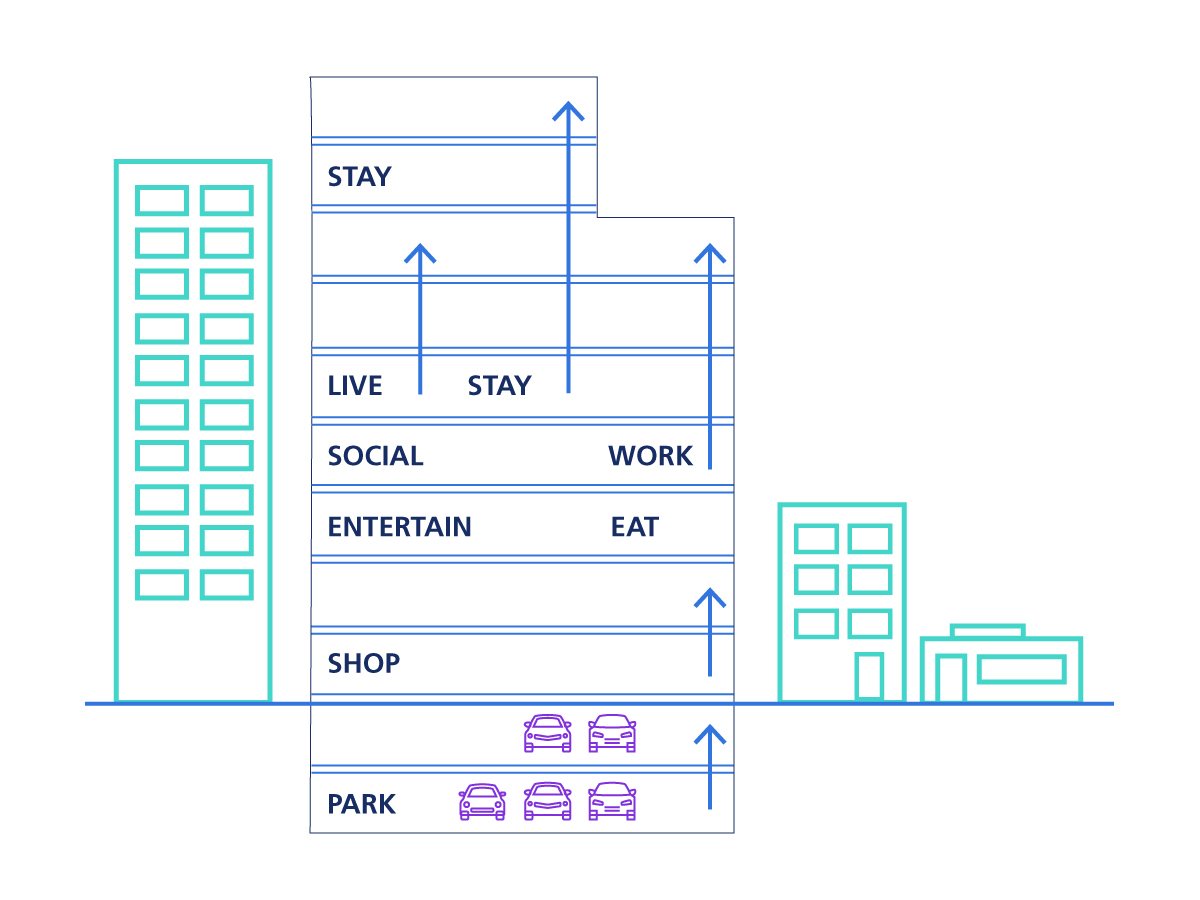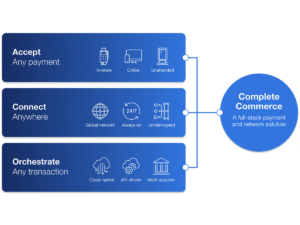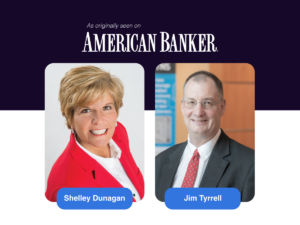As the shift towards mixed-use property developments speeds up in a post-COVID world, ensuring that your parking operation is optimized for all categories of drivers is a key challenge.
Accelerating long-term trends
With the world continuing to adjust to the effects of the pandemic, it’s clear that COVID-19 has had a significant impact on the shape of the commercial real estate industry — but it’s also true that fundamental change was already taking place within the sector.
While shopping in physical stores still accounts for 87.5% of spending in the US*1, many mall owners and retailers are continuing to explore new ways to ensure the long-term viability of their assets as the shift to online purchasing continues.This trend was already in place before the pandemic, and it is being accelerated as businesses begin to execute their eCommerce strategy while also accelerating their investment in retail technology*2.
US $203 Billion Global investment in retail technology*3.
New approaches to tomorrow’s needs
In parallel with these trends, developers across the US are expanding their embrace of innovation — not just to repurpose retail spaces, but also to meet the changing needs of communities, businesses and local governments to deliver sustainable benefits.
Mixed-use schemes that enable people to shop, work, live, socialize and dine are increasingly being seen as the blueprint to create real estate assets flexible enough to be re-configured to meet future shifts in demand. Key benefits cited include enhanced community vibrancy, greater exposure to customers, lower development risk, higher tax revenues and better public health.*4
 Smart solutions
Smart solutions
What’s more, multi-purpose developments demonstrate that urban growth and/or renewal can be done strategically.
Rather than just expanding into the fringes of a conurbation, smart growth prioritizes neighborhoods where workplaces, homes and services are brought closer together to achieve environmental wins and nurture the conditions that stimulate economic growth.*5
The challenge for mixed-use developers
Inevitably, these solutions can also create new challenges, and one of these is how to optimize parking to meet a broad range of needs.
Consider the needs of residents, for example, where a project includes housing in its design. Residents will require 24/7 access and might also wish to be able to offer parking facilities to family, friends and service delivery.
Employees of businesses located in the development will want parking that’s convenient, fairly priced, not difficult to access, and is consistently available to match their shift patterns
Providing parking for shoppers, diners and patrons of entertainment venues means adding further levels of conditions and tariffs — and so will meeting the needs of guests and visitors if a hotel is part of an overall development.
The shortcomings of legacy solutions
It’s within this complex environment that legacy car parking technology really shows its age.
Making decisions on who can access parking, how much they pay and where these spaces are located can present a real burden on your administration teams if schemes are operated manually.
Beyond this, there is the ongoing challenge of handling cash, dealing with theft from or vandalism to machines, answering queries, responding to complaints and engaging with stakeholders as your staff attempt to resolve the broader challenges of outdated parking conventions.
Put all these things together and it’s easy to see how parking efficiency, a key element of your development, can be negatively impacted.
How technology can help
The good news is that technology can help you manage the challenge, enabling you to maximize user satisfaction, optimize revenue streams and reduce the stress placed on your staff. Account-based parking platforms can help your administrators create specific user categories with dedicated, flexible conditions and tariffs to reflect the changing priorities of a broad range of customer groups. These online parking platforms are integrated with access controls which can enable touch-free access. This functionality enables the consumer desire for touchless, cashless and payment technology that’s been accelerated by the COVID pandemic.*6
82% of consumers believe contactless in the cleaner way to pay*7
Account-based platforms are also feature-rich solutions which enable you to take your parking operations to the next level. Features such as a mobile wallet integration can enable you to offer more touch point options for your customers and retailers, ultimately encouraging higher customer spend and providing better customer experience.
Mixed-use developments bring diverse parking requirements; add in changing consumer needs and there is no better time to explore innovative solutions that can improve your parking operations.
Optimize your parking operations for your mixed use portfolio
TNS offers an integrated suite of parking payment solutions including UnattendedPayments which enables cashless and touch-free payments on-site at car parks. StaffPark and ParkCharge are account-based parking platforms that help manage staff parking and casual parkers. Both StaffPark and ParkCharge allow drivers to easily create and manage an account online for touch-free payment for entry/exit.
With TNS’ payment infrastructure solutions you can transform your customers’ parking experience efficiently, safely and consistently.
In our next Thought Leadership piece, we will take a closer look at TNS’s technology and how it can transform the parking experience in your future mixed-use developments.
1 statista.com/statistics/379112/e-commerce-share-of-retail-sales-in-us
2 deloitte.com/content/dam/Deloitte/ca/Documents/consumer-industrial-products/ca-future-of-the-mall-en-AODA.pdf
3 businesswire.com/news/ home/20190530005528/en/Tech.-2019-Global-Retail-Tech-Spending-Top
4 reonomy.com/blog/post/mixed-use-development-a-look-at-whats-driving-the-trend-in-cities-and-suburbs-alike
5 smartgrowth.org
6 mastercardcontentexchange.com/newsroom/press-releases/2020/april/mastercard-study-shows-consumers-globally-make-the-move-to-contactless-payments-for-everyday-purchases-seeking-touch-free-payment-experiences






